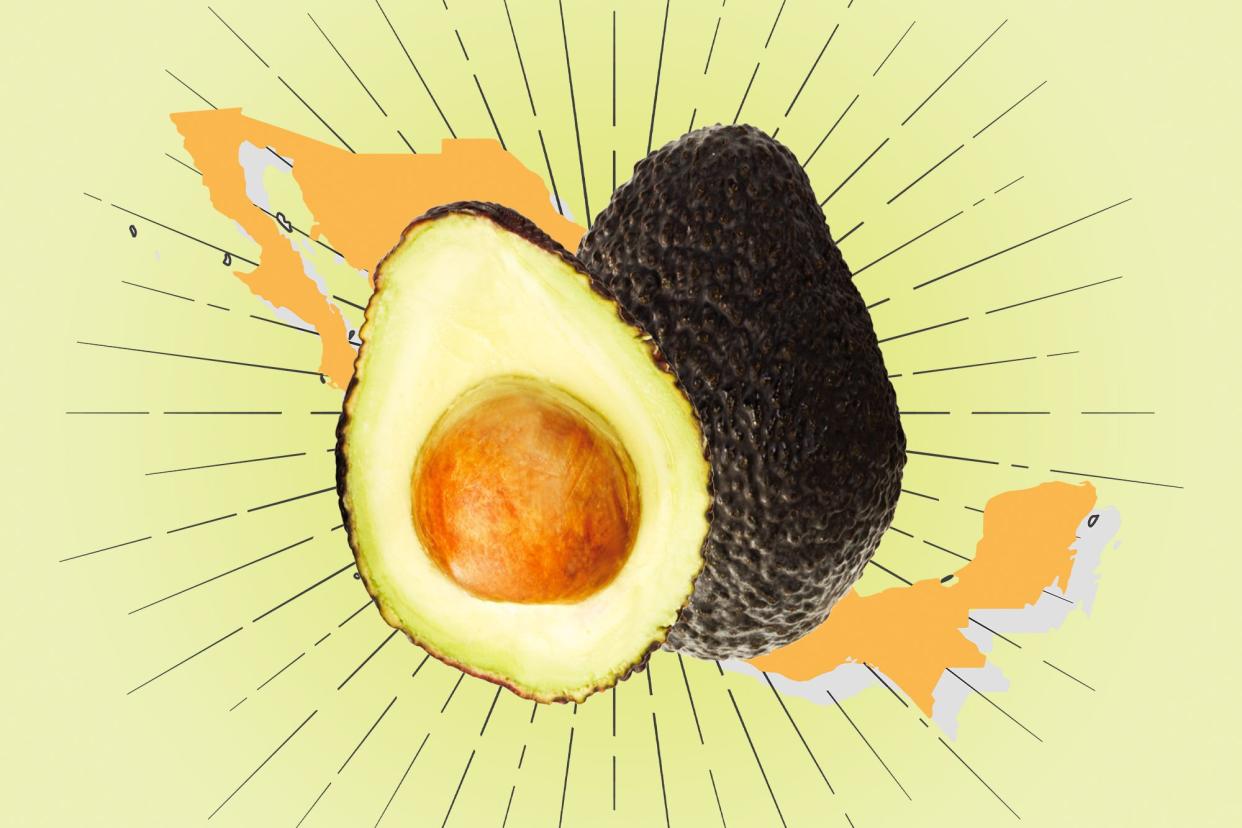The USDA Just Announced Its Avocado Ban on Mexico Is Over—but What Happens Now?

Getty Images / Creativ Studio Heinemann / bgblue
While our Super Bowl parties may have had an ample supply of guacamole, avocado availability—and prices—were threatened this week. On February 12, an inspector from the U.S. Department of Agriculture based in the Mexican state of Michoacán received a threatening phone call that prompted the agency to halt exports and inspections, according to reports from NPR.
Reports from The Daily Mail state that the Cárteles Unidos, one of several groups seeking control over the state's avocado trade, mislabeled a shipment of avocados as being from Michoacán when they were actually from Puebla, a state that has not been approved for U.S. avocado exportation. The USDA officials working on site refused to sign off on this shipment and the cartel responded by stealing a USDA truck from the premises, beating up a group of agricultural technicians and then called an American health inspector with threats of murder if he didn't change his mind about signing off on the shipment, which led to the indefinite ban by the agency.
This dangerous exchange is likely due to the fact that Michoacán is the only state in Mexico that's authorized to export avocados to the U.S. Avocados from Mexico account for 80 percent of U.S. supply. All of that comes from this one state, which means there is a lot of money consistently flowing into Michoacán—and the numbers continue to grow as U.S. consumption does. The news of the Michoacán avocado ban has led to rumors of major price hikes on the fruit that were already garnering record-high prices and possible shortages across the country.
However, the USDA announced on February 18 that it believes imports of Mexican avocados could soon resume, according to a report from CNBC. Representatives from the agency also said that there are new safety measures in place to protect the inspectors. But experts say that relying on one place for 80 percent of a product that's consistently in such high demand could pose a host of future issues.
This is not the first dangerous encounter that has happened in Michoacán. Avocado workers began bringing AR-15 rifles to work with them in 2019 to be able to defend themselves against gang violence and drug cartels, according to a Daily Mail report. Saturday's events will likely not be the last, and there's no other country or U.S. state that can make up for any lost supply of Michoacán avocados in the future. Additionally, Americans now have to reconcile the question of if they are okay with how the vast majority of our avocados are being sourced.
Desirée LeClercq, an employment law professor at Cornell's School of Industrial and Labor Relations told the Associated Press that this week's events are "requiring Americans to really ask themselves, do they want to pay more to have a quality product or do they want to kind of look the other way and be able to slice their toast accordingly?" While she believes that consumers are becoming more educated on the ethics behind how products are made and sourced, she's unsure how much this will actually affect consumer behavior.
While expanding avocado production in California seems like an ideal immediate action, avocados grown in the state can only be harvested once a year, where they are year-round crops in Mexico. Peru, which currently provides 6% of the U.S. avocado supply, is being considered as an alternative place of growth for safer production. The country's exportation of this much-beloved fruit has skyrocketed since 2016, but it will likely be a long time before it could make a similar impact as Mexico on world avocado exports. While we may not have the answers we need yet to ensure a more ethical avocado supply, we hope that more conversations will be had at federal and state levels to best support growers and inspectors in Mexico while seeking out new means for production and sourcing.

